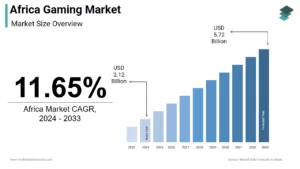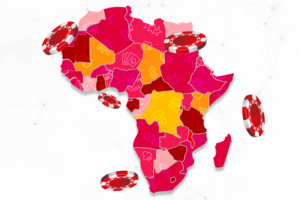The global entertainment and commerce sector continues to transform while the gambling industry shows the most pronounced signs of change. The African continent experiences a major transformation at present. The former exclusive resort-based activity has evolved into a widespread phenomenon which combines digital technology with local cultural elements. The expanding industry creates dual economic effects which generate substantial business potential yet introduce substantial difficulties for regional economic systems.
The discussion about gambling used to focus mainly on its social effects but the industry’s massive expansion through digital betting and online casinos requires detailed financial analysis. The gambling industry creates multiple economic effects which include job development and infrastructure construction and tax revenue generation and business growth throughout local communities. The complete assessment of this complex economic relationship needs to consider both development potential and necessary management controls.
The article investigates how the African gambling industry shapes the economic structure of its regional communities. The article investigates how the gambling industry generates financial benefits for national budgets and local communities while discussing essential measures for sustainable profit management.
The Rising Tide: Gambling’s Growth Across Africa
The African continent contains multiple emerging economies that operate within a population of young adults. The combination of a growing population and better internet connectivity and mobile technology usage has established an ideal environment for the gambling industry to thrive. The shift from physical casinos to digital platforms through online betting has revolutionized the industry by making games accessible to all players which led to a substantial increase in customer numbers.
Mobile phones function as portable betting facilities and casinos which millions of Africans use to access the internet. The simple betting process through mobile devices has triggered an extraordinary rise in sports betting activities that focus on English Premier League matches and domestic football competitions. The simple betting process through mobile devices has turned casual sports fans into widespread bettors who now influence their daily activities and major financial choices.
Key Drivers of Growth
Mobile Penetration: The widespread availability of smartphones and feature phones allows users to access betting applications and websites throughout the region.
Youthful Demographics: The large number of people under 35 who are digitally inclined and interested in new entertainment options creates a substantial market.
Internet Connectivity: The growth of 3G/4G networks enables people in distant areas to access online gambling services.
Increased Disposable Income: The expanding middle class across various African nations enables people to spend money on recreational activities.
Sports Culture: Football and other sports create a natural interest in betting because of the strong sports enthusiasm among local fans.
The fast-paced development of the industry forces governments and local authorities to stay behind the curve while they try to establish control over this rapidly changing market. The growing sector has prompted different countries to create formalized regulatory systems which aim to manage this lucrative industry because of its potential to generate substantial revenue.
Economic Contributions: How Gambling Boosts Local Economies
The gambling industry demonstrates its economic impact through direct financial benefits and indirect effects that benefit local communities. The industry generates various employment opportunities and generates large tax revenues which support public service delivery and infrastructure development. The effects of gambling reach far past the point of placing wagers.
Job Creation and Employment Opportunities
A successful gambling industry creates immediate employment opportunities which become one of its most noticeable advantages. The operation of land-based casinos generates a large number of employment positions. The operation of a casino requires numerous staff members who perform duties such as dealing games and floor management and security work and customer service and administrative tasks. The employment sector includes various positions which need specialized training and expertise.
The casino industry creates numerous employment possibilities which extend past its gaming operations. The hospitality industry including hotels and restaurants and entertainment facilities that operate near casinos experience higher customer traffic because of their connection to casinos. The online gaming sector which generates increasing iGaming revenue requires skilled personnel to operate its expanding operations. The expansion of the tech industry in these regions benefits from the employment of IT experts and software developers and marketing specialists and data analysts and customer support personnel. The expanding gambling economy in Africa functions as a diverse employment system.





